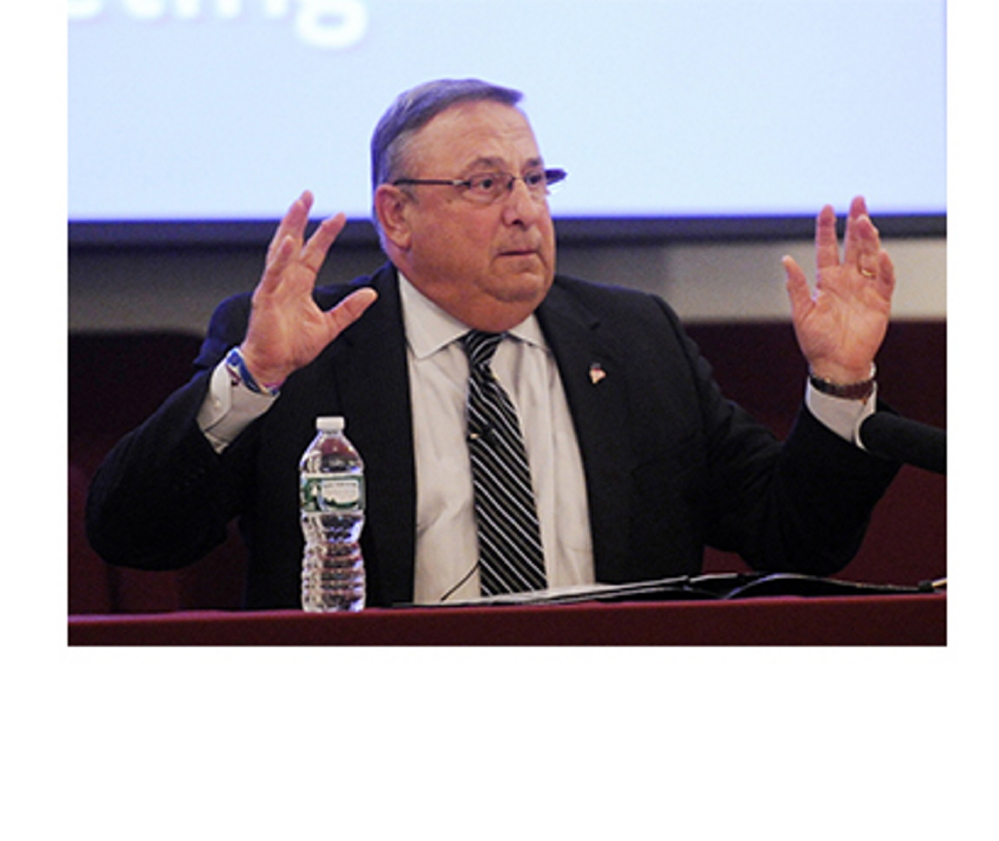Gov. Paul LePage in each of the last two years has pushed the same narrow, enforcement-centric response to the state’s drug crisis.
As that crisis continues to grow and claim lives, it would be a profound disappointment if next week’s drug summit ends with the same call for more and more arrests, with more empty lip service to the need for additional and better treatment options.
Unfortunately, it doesn’t look good, based on the summit’s focus on public safety, as well as the governor’s own outdated view of addiction.
When the governor’s summit convenes Wednesday, law enforcement will outnumber treatment experts by more than 3-to-1. Of the 22 people invited, only one can remotely be said to work directly with addicts.
The participant list makes it clear that LePage, who in both 2014 and 2015 made more drug agents, prosecutors and judges the overwhelming focus of his drug policy, and who has repeatedly downplayed treatment and disparaged addicts, wants to hear that additional funding for law enforcement is the only solution for ending the flow of heroin into Maine.
That, however, may not be the only message he receives.
An increasing number of law enforcement officials, in Maine and elsewhere, are growing tired of dealing with addiction. They see both sides of the drug tragedy, how it fuels petty crime and violence, and fills jails, and also how quickly drugs bring a person down, and how desperate addicts become.
As a result, they are turning away from the old way of doing things, and toward new, innovative partnerships with the treatment community.
In Gloucester, Massachusetts, the police chief has opened the police station to addicts seeking help, promising to connect them with treatment. Since June, the program has put 100 people into treatment, and out of the cycle of addiction and crime that impacts the greater community.
Seattle, too, has seen success with a similar program.
In Maine, police in both the small town of Paris, in the Oxford Hills area, and Portland are interested in replicating those programs here.
A drug summit should be the place to discuss those initiatives and others that get people the help they need and allow law enforcement to focus their efforts where they count most.
It should be the place where police and treatment providers discuss the best way to inform addicts about a particularly bad batch of heroin, or to stop the spread of hepatitis C.
And it should be the place to coordinate the state’s treatment options, so that state money for treatment is not — incomprehensibly — going unspent while people seeking treatment are being turned away.
Instead, the governor appears to setting it up so he’ll hear only what he wants to hear.
We hope, though, the participants will fill him in on the other side.
Send questions/comments to the editors.



Comments are no longer available on this story